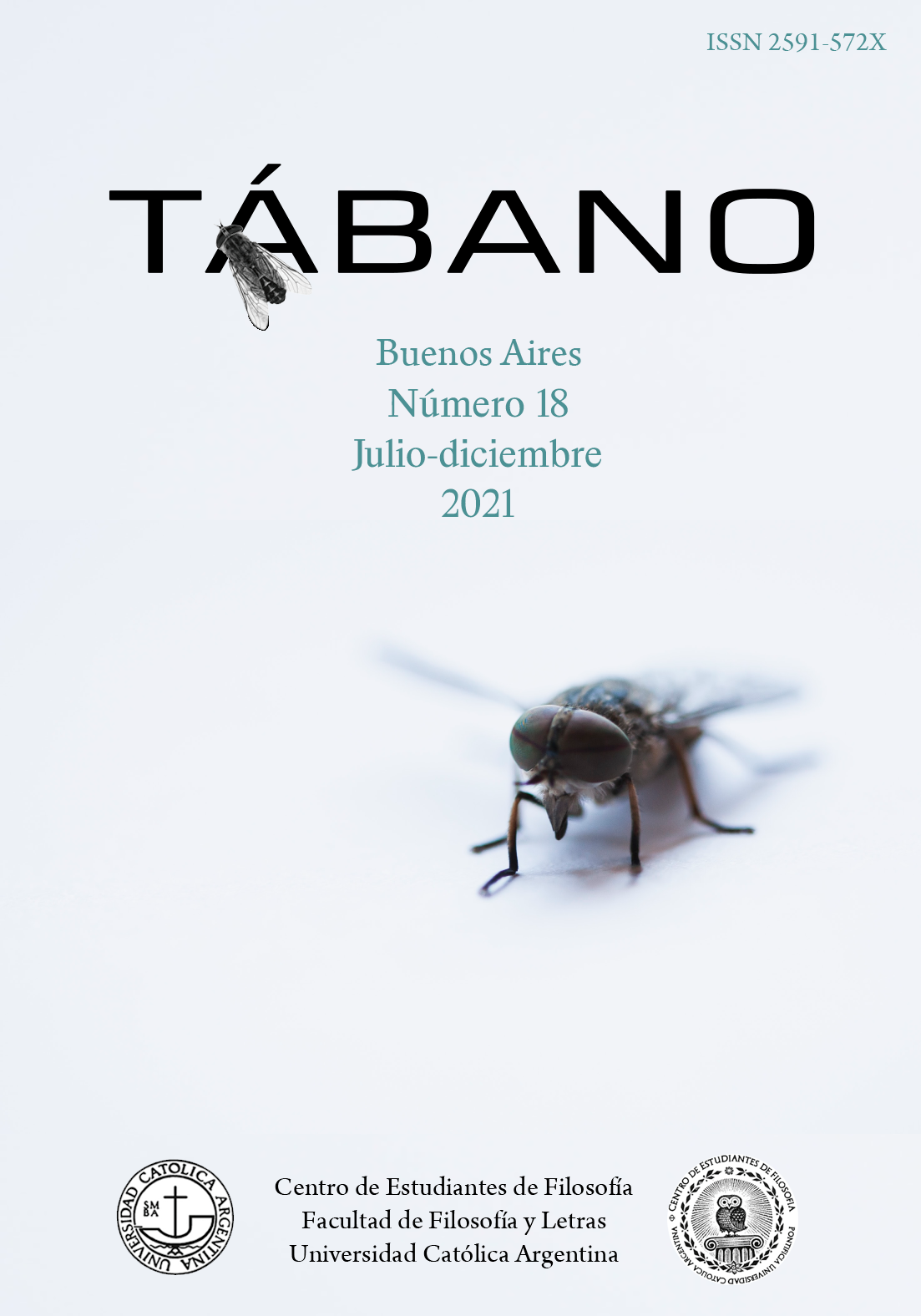Meanness and Inhospitality in Hesiod's Work. The Traces of Anthropological Decadence
DOI:
https://doi.org/10.46553/tab.18.2021.p123-128Palavras-chave:
Hospitalidad, Reconocimiento, Respeto, Otro.Resumo
In this article, we will work on the marks of hospitality that appear in Hesiod’s work as well as on the attitudes that oppose such a spiritual dimension, related to the virtue of excellence of the prudent man. We understand that hospitality is intrinsically associated with virtue, areté, and the recognition of the other. In terms of M. Buber, hospitality is related to the possibility of opening up to a “you” on the threshold of language; it is also linked to the Heideggerian experience of “being with” as recognition of the anthropological pair, or with the anthropological experience itself that defines E. Mounier's personalism in the recognition and respect of the human person.
Downloads
Referências
Hesíodo (2000). Obras y fragmentos. Madrid: Gredos.
Hesiod (2006). Theogony. Works and Days. Testimonia. G. W. Most, (editor y traductor). Loeb Classical Library. London: Harvard University Press.
Liddel, H. G. y Scott, R. (1996). A Greek-English Lexicon. Oxford: Clarendon Press.
Hesíodo (2005). Teogonía, Trabajos y Días. L. Liñares, introducción, traducción y notas. Edición bilingüe. Buenos Aires: Losada.
Vianello de Córdova, P. (1978). Hesíodo Teogonía. México: Universidad Nacional Autónoma de México.
Buber, M. (1974). Yo y tú. Buenos Aires: Nueva Visión.
Heidegger, M. (1997). Ser y tiempo. Santiago de Chile: Editorial Universitaria.
Madrid, M. (1999). La misoginia en Grecia. Valencia: Cátedra.
Mounier, E. (1972). El personalismo. Buenos Aires: EUDEBA.
Downloads
Publicado
Como Citar
Edição
Secção
Licença
Direitos de Autor (c) 2021 María Cecilia Colombani

Este trabalho encontra-se publicado com a Licença Internacional Creative Commons Atribuição-NãoComercial-CompartilhaIgual 4.0.



